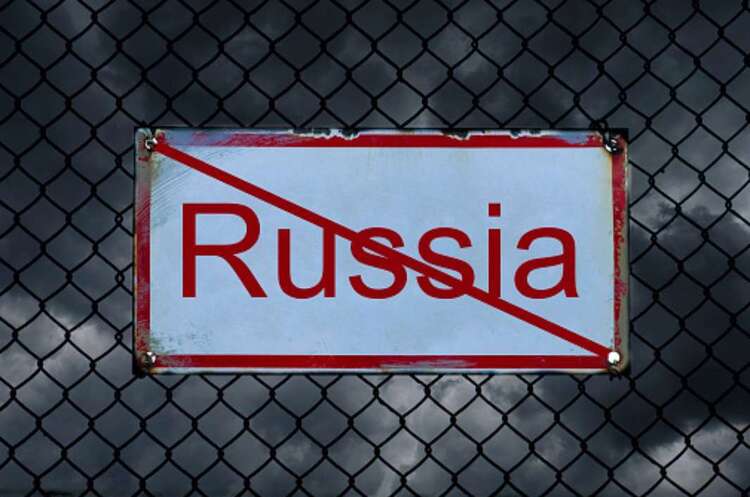Sanctions slab against Russia: experts assess the 18th EU sanctions package, Nord Stream and the weaknesses of the West
18 July 18:53 ANALYSIS FROM
ANALYSIS FROM On the morning of July 18, the Committee of Permanent Representatives of the EU (Coreper) agreed on the 18th package of sanctions against the Russian Federation. Reportedly, this issue was the only one on the agenda of the meeting.
It is expected that the package will be officially approved later that day during the EU Council’s General Affairs meeting.
EU High Representative for Foreign Affairs and Security Policy Kaja Kallas called the package one of the strongest ever implemented against Russia.
We continue to cut the Kremlin’s military resources: 105 more vessels from the “gray fleet” and their facilitators have been added to the lists. We are also restricting the ability of Russian banks to raise funds,” Callas said.
The sanctions include a ban on the operation of the Nord Stream and Nord Stream 2 gas pipelines, as well as a reduction in the price ceiling for Russian oil. In addition, the new restrictions are intended to hit the Russian military-industrial complex and Chinese banks that help Russia circumvent sanctions.
Kallas also emphasized that the sanctions list for the first time includes a register of ships, as well as one of Rosneft’s largest refineries located in India. She also noted that some of the sanctions concern individuals involved in propaganda influencing Ukrainian children.
Kallas emphasized: “The European Union will continue to increase pressure on Russia to force it to stop its aggression, leaving Moscow with only one option – to stop the war.
However, how realistic is the effect of this sanctions package, whether it can break the Russian economy and who actually controls its implementation – further in the article
“It should have been a concrete slab, not a drip”
Former SBU officer and military expert Ivan Stupak in an exclusive commentary for
“My personal impression is that all these sanctions should have been imposed simultaneously, like a reinforced concrete slab that would have fallen on the Russian Federation and immediately paralyzed its ability to do business and make money. And now it’s like a poison that is being injected into the body by drip. Yes, it causes convulsions, but over time, Russia will adapt.
According to Stupak, Russia has enough resources to look for loopholes in the sanctions mechanisms:
“They have armies of analysts, economists, and lawyers, both domestic and foreign: from China, Israel, and Singapore. They help to create schemes, gaskets, and bypass routes. And it works.
Experts pay special attention to the clause on the final ban on the operation of Nord Stream and Nord Stream 2. Stupak says that the idea of restoring one of the damaged branches and returning Russian gas to the European market was recently discussed.
The American side, in particular former US Ambassador to Germany Richard Grinnell, has been actively lobbying for the restoration of the second line of Nord Stream 2, which is only 50% damaged. The cost of its restoration is approximately 700 million euros. This is a pittance on the EU scale.
Stupak notes that there were also legal attempts to preserve the infrastructure:
The Swiss court even postponed the decision on the bankruptcy of the pipeline owner until May 2025. But apparently, no agreement was reached. And now the EU has finally abandoned this scenario.
Stupak also emphasizes that the EU’s position means that Russia will not return to the European gas market in the near future.
Gazprom used to be a monster with a projected capitalization of trillions. Now it is no longer bankrupt, but it is not an empire either. Their gas has nowhere to go, China is not building new gas pipelines, and their return to Europe is blocked.
Stupak also points to the main problem with all sanctions: weak control:
“A ban is good. But who enforces it? The United States is gradually withdrawing from the administration of sanctions. They are reducing the responsible agencies, not prosecuting violators, not looking for assets. The Europeans are not yet coping with this.
What is wrong with the 18th package of sanctions against Russia
Political expert and managing partner of the National Anti-Crisis Group Taras Zagorodniy points to another important aspect of the sanctions: shipping and control over the transportation of Russian oil:
“The key question is whether the passage of sanctioned Russian vessels through EU territorial waters will be prohibited. This is especially true of the Denmark Strait. If they start detaining ships and examining documents there, it will be a serious blow.
According to him, the problem is also in the insurance market:
After 2022, British companies refused to insure Russian ships. But Russia immediately found “left-wing” companies – in Hong Kong, the UAE, or at home. And the main question is who recognizes these insurances. Because without them, you can’t enter the port.
At the same time, the expert emphasizes that the most effective sanctions are not Brussels’ decisions, but Ukraine’s actions:
“The Security Service of Ukraine has recently hit the terminals in the Baltic Sea hard. This has reduced Russian oil exports by 15%. Everything else is just a bonus.
The new package of EU sanctions does contain serious restrictions, but the main question remains: who will control their implementation and how? And whether the West will be able not only to make decisions but also to administer them effectively, while Ukraine is already paying the price of war every day.
Author – Daryna Glushchenko
Читайте нас у Telegram: головні новини коротко









